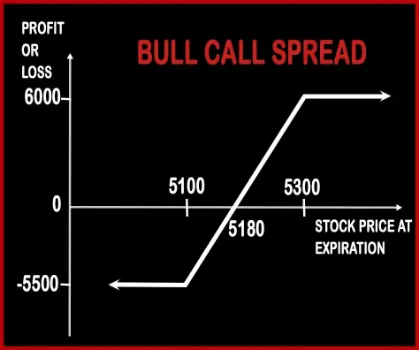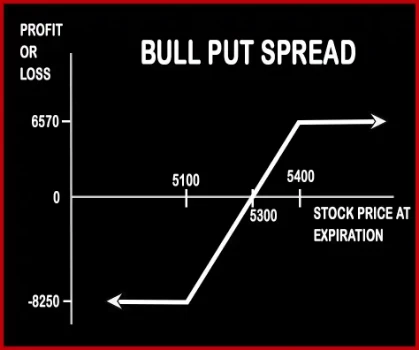Compare Strategies
| BULL CALL SPREAD | BULL PUT SPREAD | |
|---|---|---|

|

|
|
| About Strategy |
Bull Call Spread Option StrategyBull Call Spread option trading strategy is used by a trader who is bullish in nature and expects the underlying asset to give decent returns in the near future. This strategy includes buying of an ‘In The Money’ Call Option and selling of ‘Deep Out Of the Money’ Call Option of the same underlying asset and the same expiration date. |
Bull Put Spread Option StrategyBull Put Spread option trading strategy is used by a trader who is bullish in nature and expects the underlying asset to move in an upward trend in the near future. This strategy includes buying of an ‘Out of the Money’ Put Option and selling of ‘In the Money’ Put Option of the same underlying asset and the same expiration date. When you write a Put, you will receive prem .. |
BULL CALL SPREAD Vs BULL PUT SPREAD - Details
| BULL CALL SPREAD | BULL PUT SPREAD | |
|---|---|---|
| Market View | Bullish | Bullish |
| Type (CE/PE) | CE (Call Option) | PE (Put Option) |
| Number Of Positions | 2 | 2 |
| Strategy Level | Beginners | Advance |
| Reward Profile | Limited | Limited |
| Risk Profile | Limited | Limited |
| Breakeven Point | Strike price of purchased call + net premium paid | Strike price of short put - net premium paid |
BULL CALL SPREAD Vs BULL PUT SPREAD - When & How to use ?
| BULL CALL SPREAD | BULL PUT SPREAD | |
|---|---|---|
| Market View | Bullish | Bullish |
| When to use? | This strategy is used when an investor is Bullish in the market but expect the underlying to gain mildly in near future. | Bull Put Spread strategy is used when you're of the view that the price of a particular underlying will rise, move sideways, or marginally fall. |
| Action | Buy ITM Call Option, Sell OTM Call Option | Buy OTM Put Option, Sell ITM Put Option |
| Breakeven Point | Strike price of purchased call + net premium paid | Strike price of short put - net premium paid |
BULL CALL SPREAD Vs BULL PUT SPREAD - Risk & Reward
| BULL CALL SPREAD | BULL PUT SPREAD | |
|---|---|---|
| Maximum Profit Scenario | (Strike Price of Call 1 - Strike Price of Call 2) - Net Premium Paid | Max Profit = Net Premium Received |
| Maximum Loss Scenario | Net Premium Paid | Max Loss = (Strike Price Put 1 - Strike Price of Put 2) - Net Premium Received |
| Risk | Limited | Limited |
| Reward | Limited | Limited |
BULL CALL SPREAD Vs BULL PUT SPREAD - Strategy Pros & Cons
| BULL CALL SPREAD | BULL PUT SPREAD | |
|---|---|---|
| Similar Strategies | Collar | Bull Call Spread, Bear Put Spread, Collar |
| Disadvantage | • Limited profit potential to the higher strike call sold if the underlying stock price rises. • Maximum profit only if stock rises to the higher of 2 strike prices selected. | • Limited profit potential. • In loss situations, time decay may go against you. |
| Advantages | • Allows you to reduce risk and cost of your investment. • When placing the spread, exit strategy is pre-determined in advance. • Risk is limited to the net premium paid. | • Benefit from the time decay in profit positions but harmful in loss positions. • Profitable when underlying stock price rises, move sideways or marginal drop. • Reduce the downside risk. |